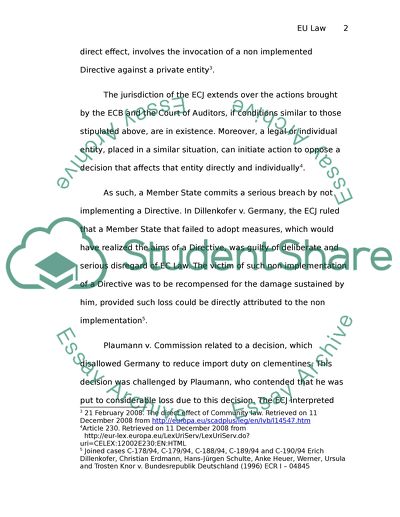Cite this document
(“Constitutional law of the european union Essay Example | Topics and Well Written Essays - 2500 words - 2”, n.d.)
Constitutional law of the european union Essay Example | Topics and Well Written Essays - 2500 words - 2. Retrieved from https://studentshare.org/miscellaneous/1550505-constitutional-law-of-the-european-union
Constitutional law of the european union Essay Example | Topics and Well Written Essays - 2500 words - 2. Retrieved from https://studentshare.org/miscellaneous/1550505-constitutional-law-of-the-european-union
(Constitutional Law of the European Union Essay Example | Topics and Well Written Essays - 2500 Words - 2)
Constitutional Law of the European Union Essay Example | Topics and Well Written Essays - 2500 Words - 2. https://studentshare.org/miscellaneous/1550505-constitutional-law-of-the-european-union.
Constitutional Law of the European Union Essay Example | Topics and Well Written Essays - 2500 Words - 2. https://studentshare.org/miscellaneous/1550505-constitutional-law-of-the-european-union.
“Constitutional Law of the European Union Essay Example | Topics and Well Written Essays - 2500 Words - 2”, n.d. https://studentshare.org/miscellaneous/1550505-constitutional-law-of-the-european-union.


